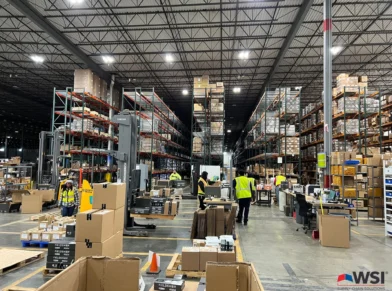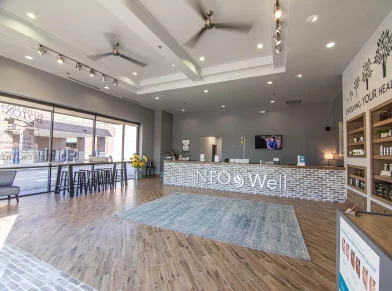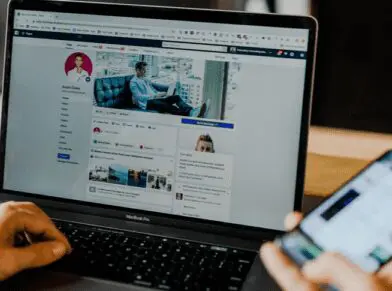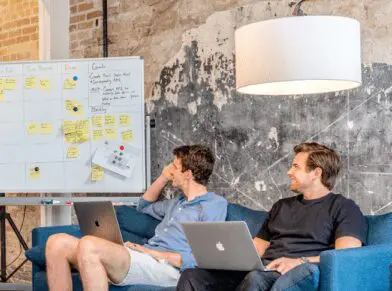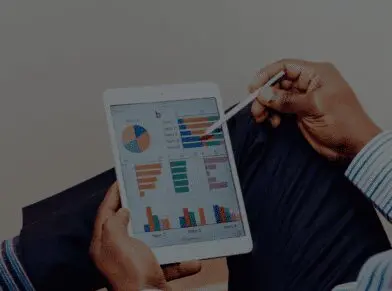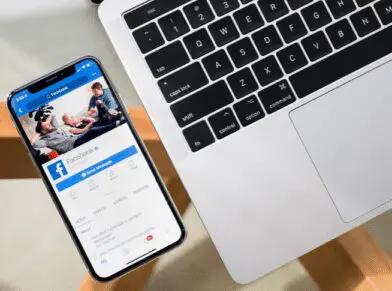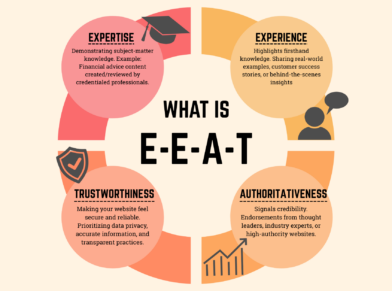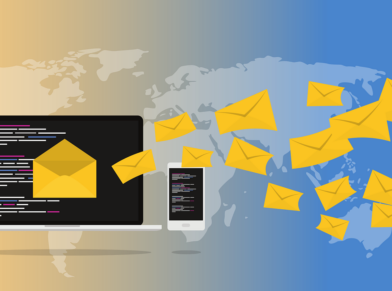VIDEO: THE DIFFERENCE BETWEEN SEO AND PPC
Hi, Eric McGehearty from Globe Runner here, and today I want to talk about the difference between SEO and PPC.
I think most of us know that search engine optimization is a process of getting a website to rank better in search results on Google, Bing, Yahoo, or whatever search engine you choose in the organic section.
Pay per click is a form of advertising, generally in search, that is the process of buying ads at the top of a search engine based on certain keywords.
They have a lot in common, because with both we’re targeting specific keywords and phrases to get a relevant customer or buyer to come into the website. If you have a number 1 result on SEO and a number 1 result on pay per click, you’ll achieve a similar outcome.
But with all that said, what should you expect from a campaign? The biggest difference is speed. SEO is something that is built over time and earned based on lots of factors including your popularity on the web. Other factors include how many people are linking to you, who is linking to you, your content, how great it is, your keyword usage, your site architecture, and your indexability.
When you are thinking about an SEO campaign and evaluating the performance, it should be looked at monthly, quarterly, annually. As much as you would evaluate any other KPI.
But it is a long term goal and not expected to see huge gains from month to month. With compounding interest in mind, you will see massive gains over extended periods of time.
Pay per click is a little different. It’s much quicker. you will see results very fast. in fact, you will see traffic the first day you turn it on. And that traffic hopefully will convert to leads and sales fairly quickly.
It usually takes a few weeks to a few months to really dial a pay per click campaign in and start generating really measurable, good results, but nonetheless, it’s a fast return on your investment.
Will it have a compounding interest effect? Generally no, not without doing extensive A/B testing and conversion rate optimization. Those will improve over time and ongoing enhancements to the campaign will improve but it won’t compound the same way SEO does. You will need to spend more money to get better results.
If your pay per click campaign is profitable, that’s exactly what you should do. If it’s not profitable, you should cut if off or make some significant changes to the way the account is structured before it continues.
Thanks so much, I look forward to talking to you next time.
5 PRACTICAL REASONS TO DO PPC IN 2018
When it comes to promoting your brand online, one of the most powerful tools at your disposal is pay-per-click advertising. There are several very practical reasons for incorporating PPC into your overall online marketing strategy, five of which are explained below.
Reason 1: You Only Pay When Your Ad Is Clicked On
Perhaps one of the most obvious advantages of PPC is that you only pay when someone clicks on the ad. This provides a far more streamlined usage of your funds than traditional advertising, in which you throw money into your ads without really knowing whether or not they will yield you a profit.
Reason 2: High ROAS
When it comes to short-term yields, PPC provides a higher Return On Ad Spend (ROAS) than SEO. PPC brings in traffic much more quickly than organic search optimization, and while SEO is important for overall volume in the long run, sponsored ads are far more efficient over the short term. In addition, people who click on sponsored ads tend to have a higher intent to buy, meaning that for every click you get on an ad, you are more likely to turn a profit.
Reason 3: PPC Gives You Immediate Traffic
Pay-per-click campaigns have higher click-through rates than organic SEO, and since it’s so direct, you can see results immediately. When your ads are targeted at the right audience in the right place at the right time, traffic comes swiftly, making it very useful for short-term promotions or quickly jump-starting your business.
Reason 4: Gives You Insight to What Is and Isn’t Working on Your Site
The speed and directness of PPC can help you see how your overall online marketing strategies are panning out. With a paid ad, it’s easy to see who clicks on what and how those clicks are converting into revenue for your brand.
Reason 5: Build Your Brand as It Sells Its Offerings
When used well, PPC puts your brand out where your audience is likely to see it and click on it. This makes it a very powerful method for building your brand identity, all while selling its offerings. Right after SEO, PPC is among the most powerful tools you have for building your brand online.
Of course, in order to be effective, PPC must be implemented with a sound knowledge of your audience and the overall online marketplace as a whole. This is where online marketing experts come in. Contact the Digital Rockstars at Accelerate Online Marketing today to implement PPC in your 2018 marketing strategy.
GOOGLE ADWORDS ADS, ORGANIC SEARCH, AND THE EBAY SEARCH PENALTY
Google has always maintained that paying for Google AdWords ads doesn’t have any effect on your organic search engine rankings. They just don’t share the same databases, so there’s no way for Google to know if you paid for AdWords ads and relay that information to the organic search team or its algorithm. I have to say that I agree with them–by mixing the two or allowing those two database to essentially “talk to each other”, there would be serious consequences and a lack of overall trust by the public in organic search.
As Google organic search begins to rely more on more “human factors” that are more and more measurable, it’s more likely that Google AdWords ads will come into play and start to have an effect on a site’s organic search engine rankings. For example, when a site starts seeing more visitors from paid search, users tend to initially come from paid search–but then they may go back later and perform some brand searches, which then affects organic search traffic. It’s those same visitors who may share the content and interact with it on the social media sites, which could then effect organic search traffic, as well. Then, finally, one theory I’m toying with is that Google is watching the overall traffic to a site and the level of engagement by humans. The more popular a web page, article, blog post, or site becomes, the better it will perform in organic search. As that traffic fades, so does the site’s organic search engine rankings.
So, when it comes to the correlation between Google AdWords and Google organic search, there may very well be a correlation between the two: but it’s traffic related, not because of the fact that Google AdWords and Google organic search shares the same database or the same data.
But let’s not forget a study that Google did back 2012, called Impact of Organic Ranking on Ad Click Incrementality:
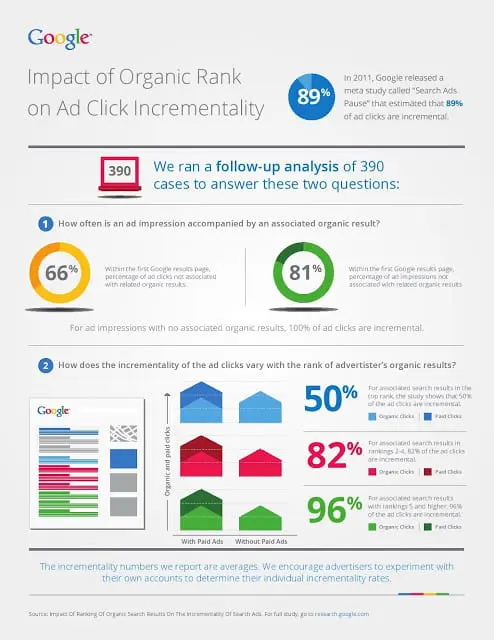
There is a strong correlation between organic search and paid ads when you’re running paid ads. You get clicks on your organic search results. And, guess what? Google tracks the clicks on your organic search listings. The more people who click (and don’t pogostick back to the search results), the better your organic search engine rankings. Or at least Google’s tracking the clicks on organic search and using that data somehow in the organic search algorithm.
It’s not surprising to me that if you stop paying for AdWords ads your visibility in organic search will go down as well.
Recently, there have been some interesting reports and comments regarding eBay and the fact that Google has penalized the popular online auction website in organic search. eBay stopped paying for Google AdWords traffic about a year ago. As a result of not participating in Google AdWords, I can see how eBay’s traffic started going down over time, as they just as visible as they were previously. eBay was recently penalized in Google’s organic search results either by an algorithmic penalty–or with a manual action (or both). eBay nor Google is commenting on what the current situation is. But, nonetheless, it’s clear that the site’s traffic from organic search has gone down.
According to SEMrush.com, eBay has suffered significantly with this last Google organic search update:
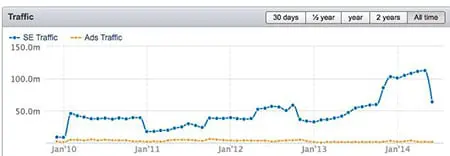
A SearchMetrics report shows that eBay has suffered a 78 percent loss in search traffic.
According to SE Roundtable, conspiracy theories exist around the loss in eBay’s organic search traffic. Apparently there are theories out there that say that this some sort of backlash or penalty for stopping paying for Google AdWords ads. Reports say that eBay spent over a billion dollars in Google AdWords ads. And they’ve stopped advertising in Google AdWords.
Frankly, I personally believe that Google wouldn’t be so bold as to do something like penalize eBay for not paying for Google AdWords ads. They just wouldn’t do that, as it wouldn’t make sense: if it were to be connected in some way, there could be strong repercussions and most likely some sort of legal action would come as a result.
My theory is that Google AdWords ads, and the traffic that it generates, has an effect on a site’s organic search, especially given the fact that “human interaction” with your website is so much more a part of the Google organic search algorithm than it has been before. The fact that Google has been cracking down more and more on low quality, thin content with Google Panda is related. How much unique content really is on eBay? Many sellers upload literally thousands of listings, with all sorts of duplicate content, and that content doesn’t stick around for that long. It eventually goes away when the auction is completed. That has to come into play here.
There’s no evidence that Google has consciously dinged eBay because they stopped paying for AdWords ads. There never will be. But think about it: if you stop getting traffic to the site, there’s less human interaction with your site, people don’t search for your brand as much as they did in the past, and they don’t socialize your site as much as they used to. And that’s what’s going to effect organic search traffic.
Sure, there could also be a Google algorithmic or manual penalty on eBay’s site, as well. Does it really matter? I don’t really care at this point if eBay ranks for a keyword phrase or not: I’m going to straight to eBay to bid and buy. I’m not going there because I found something in Google organic search.
Bill Hartzer is Globe Runner’s Senior SEO Strategist. Connect with him on Google+ or on Twitter as Bhartzer.
INTEGRATING DISPLAY ADS WITH KEYWORD TARGETING FOR LOWER CPA
At DFWSEM I had a chance to interview James Moore Chief Revenue Officer of Simpli.fi about the potential of using display ads that are triggered by the users search history.
Transcription
Eric McGehearty: My name is Eric McGehearty, here again and I’m really excited. James from Simpli.fi had a really exciting speech about re-marketing and display. Display has been one of those areas that we’ve used before, we’ve had some success with, we’ve had some failures, but after tonight’s talk I really feel like we’re going to have some big home-runs for some of our clients.James, can you give me some insight about what you were talking about the keyword level targeting in display? How does that work?
James Moore: The reality is the display space, frankly, is starting to look more and more like search. The integration display and search is really at a fever pace rapidly coming together. Part of that has to do with the fact that publishers are releasing their inventory with real time bidding which is a role that the search people know all too well, bidding on keywords, the highest bidder to get a conversion.
Really what’s happening now is that they’re starting to release keyword data and search re-targeting in the simplest form simply means that when a company does a search on say Google and your text ad comes up. When they don’t click on that, you lost that opportunity for that customer, but not anymore because with search re-targeting, what’s happening is we’re able to build a profile of that user’s search behavior so that you can to me with your keyword list and have a second chance at targeting these individuals with display ads.
Eric: One of the things that you mentioned to me that was really powerful is the cost of difference and the potential to optimize that cost. On Google there’s a lot of different keywords at a very high cost. We have customers that spent an easy $15 on click. You’re telling me that in some senses there’s potential for me to get a customer who searched for that word, I can get a display ad to him for maybe a dollar a click. How does that work?
James: The example I gave in my speech tonight was mesothelioma. That’s a word that’s synonymous with very high CPC, cost per click. The reality is that when you’re bidding on that in a search engine you’re bidding on that keyword. Whenever I’m buying display ad space that may be one of hundreds of keywords I have attached to that user so I’m literally bidding for the price it costs to put that display ad on that publishers side at the time their eyeballs are there.
We’ve got data that basically says terms that could cost $20, $30, $40 a search are 90 cent, $1 terms in display and you’re able to take what was a costly segment and target them very specifically with these display ads at a very low cost.
Eric: In real world, these are a lot of things that big companies deal with but from a small business point of view just think about that roofer during a hailstorm. Roofers will pay a huge amount of money during a hailstorm to get those clicks. We can re-target those people at home improvement websites, or any website for that matter. They have been looking for a new roof suddenly we show them an ad that’s a very cheap cost for that roofing.
James: Actually it gets more exciting, right, because you’re able to take keywords that are important to that roofer that he can bid on at a low cost but at the same time because of the integration of display technology you can even layer that in with contextual. It diminishes the pool but basically you could say I want to bid on roof repair in Dallas, Texas during this time period but only when they have searched for that term and on a page reading about roofing which is amazing. The pool narrows but the click-through rates of conversion go relatively high.
Eric: James, I really appreciate it. We’re going to be bringing this technology to Globe Runner and to our clients so we really look forward to talking to you more about it. It’s very nice to meet you, James.
James: It’s nice to meet you, too.
